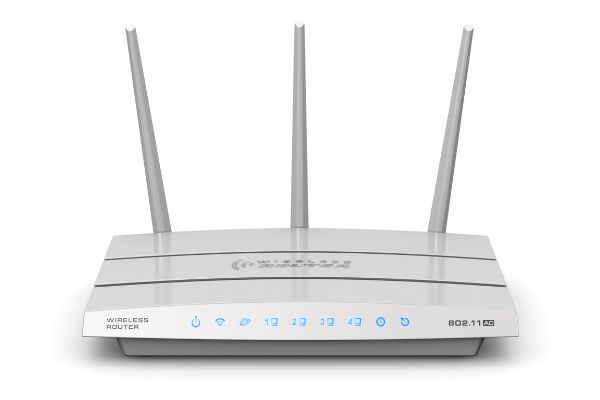Disclaimer: This post may contain affiliate links, meaning we get a small commission if you make a purchase through our links, at no cost to you. For more information, please visit our Disclaimer Page.
College is a time of personal growth as much as it is preparing for further studies in education and, eventually, the professional world. For many students in this age group, it could be the first time living away from home. There are many responsibilities that come with that new chapter in life, and one of them is setting up your internet connection for the time that you live in the dorm. There are a few steps to this process, and the ones you have to go through can vary from one university to the next. Typically, all of this will depend on the specific policies laid out by the university’s administrators and IT experts.
Many students who are going to college wonder if they can use their own personal Wi-Fi connections while they are there. We will go over some of the aspects of this question in our article, including whether college dorms offer some kind of free Wi-Fi connection to students.
If you do have different options, we will also talk about setting up a router of your own in your college dorm room. On a related note, we’ll discuss why some campuses may not allow this, and how you might be able to get faster internet in your dorm room in other ways, too.
Table of Contents
Do College Dorms Have Free Wi-Fi?
Dormitories for students typically offer free Wi-Fi connections to residents living there. The specifics of this may vary from one campus to another, and it can depend on what the IT department of the university decides is the best course of action.
All students will need internet access at some point from multiple places on campus, including lecture halls, dorms, and simply when they are out and about on the grounds doing various activities. To that end, many universities have ways to get students hooked up to campus-wide Wi-Fi.
This allows the institution to ensure that the students are never without some kind of internet access as long as they are within the bounds of the college’s coverage area.
Dorms will usually offer the same option. However, you may have to complete a few additional steps first. Here are some general guidelines for what you might need to do in order to get internet access for particular devices in your dormitory:
1. It is possible that you’ll need to register at least your laptop or other computer with the IT or tech department at the university.
2. They may need to see or work on your laptop for this to happen. Many students will bring their devices to this place the weekend before college courses begin, or they will try to do it shortly thereafter.
3. Part of the reason for this step is to register the MAC ID of your device. Not all colleges require this, but some do. A common way to connect to college Wi-Fi is simply using your student login information that students use to access the college portal.
4. For the most part, universities see this as an extra security measure to prevent unauthorized access from people who are not students. With MAC filtering tables, even knowing the Wi-Fi password won’t necessarily get you online.
5. There are some limitations to having a MAC Filtering Table enabled, so not every university will do it this way.
Can I Use My Own Wi-Fi at College?
Yes, it is possible to use your own Wi-Fi at college. However, this will depend on what the rules there are for the university. Some IT people may see too many different, unverified Wi-Fi connections as a series of security risks that make their jobs harder.
For more information, consult the terms and conditions of internet access and online behavior that your university or dorm puts out.
Almost every one should have something like this in its rules, and it should tell you whether you are allowed to use your own Wi-Fi.
Different dorms on campus may have their own internet access as well. A tech or mechanical room of some kind would exist somewhere in the building, and routers or access points in here would give connections out to students while they are within the service range.
If your university has anything like this, there shouldn’t be much of a need to set up your own Wi-Fi. It is not an overly complex process, but it is one more thing you would have to do on your own that you could avoid.
How Do I Set Up a Router in My Dorm?
There are ways to set up your own router in your dorm. However, before we begin, we should note that it is important to know and understand your university’s policies on this matter. If they do not allow it, it is not a good idea to go around them on this.
We can discuss why that is, and what could happen if you do, in the following section. For now, we will assume that your college has no prohibition against students using their personal routers in their dorms. Here are some of the general steps you can follow to set up your router:
- Look for an ethernet wall port in your dorm.
- This port will probably have a label like ’ENET’ or ’Data’ displayed on it somewhere.
- If your router is new, it should have come with its own cable that you can use. Plug one end of the cable into this wall port. Make sure the other goes into the appropriate port on your router.
- There should be a row of several ports that the cable can fit into, so just put it in the first one.
- You can use the appropriate username and password to log into the router and get everything set.
- To do this, you’ll follow the setup wizard to create the wireless network, just like you would at home.
- This will include picking different passwords, setting security protocols, and choosing wireless bands.
- Once everything is done, you should be online, and your traffic will now route through your one network rather than the wider one.
There can be a few advantages to having your own wireless network to run things off of while you are in the college dorm. You may prefer to set up your own security measures. You should also get an extra layer of security by being the only person who knows the access codes to this network.
Furthermore, a router connection of your own might be better equipped to keep up with the speed or bandwidth needs that you have.
Why Are Routers Not Allowed in Some Dorms?
Although some schools allow students the option to bring their own routers, many have explicit prohibitions against this in their rules. This is definitely one area in the book in which students should take a very close look, just to make sure they aren’t violating any online policies.
The board at the college that may handle these sorts of matters will not take ignorance of the school’s rules as any kind of excuse for leniency. Because the students are adults, the administration of a university expects them to know and understand school policies.
This means reading through any documents the school gives you in order to gain a full understanding. The primary reasons why campuses may restrict router usage are due to streamlining and security.
Having a router that the university doesn’t control creates a potential security hazard for which the IT department might be responsible. Although you may take steps to lock the router and prevent access, there could be ways for malicious actors to gain entry to it.
Once done, they could compromise the devices you’ve connected to that network. Additionally, they may be able to use your infected device to start getting to those of your neighbors and others in the dorm at large.
The security implications here could be big and, although IT would have to find ways to clean it up, the college may hold you responsible for the breach.
A second reason for wanting students to stick to the routers and connections the school provides is to make sure traffic flows smoothly.
If several students in a dorm decide to use different routers for each of their connections, it can cause problems with all the devices of their neighbors being able to use the internet efficiently.
This can cause traffic for everyone to slow down, get interrupted frequently, or experience other issues that could make both online classes or entertainment hard to enjoy.
What Other Ways Can I Get Faster Internet in My College Dorm Room?
Here are just a few ways you might be able to get the most out of your internet connection in the dorms:
- Plug your connection into the wall socket and keep it there. This should give you a more stable connection. It is a particularly handy tip for desktop rigs.
- Do resource-intensive things like streaming and gaming at times when you know many others may not be.
- Be efficient with your internet usage. You may not be able to stream, download, listen to music digitally, and play online games all at once over one connection.
- A network adapter that is rated for high gains could be useful in extending your device’s range. This is particularly true if your dorm room is far away from wherever the IT sets the building’s access point.
- When necessary, use your phone as a hotspot.
Conclusion
Living on the college campus can be a great experience for lots of students. It tends to keep them more focused and engaged when they need to study, but it also puts them closer to a lot of the extra activities that foster fun and social development, too.
College Wi-Fi is often free and perfectly serviceable, but you may wish to bring your own router. Some institutions do not allow this, but there are still ways you might be able to get the most out of your internet connection, and you can try some of the tweaks we’ve listed here.


